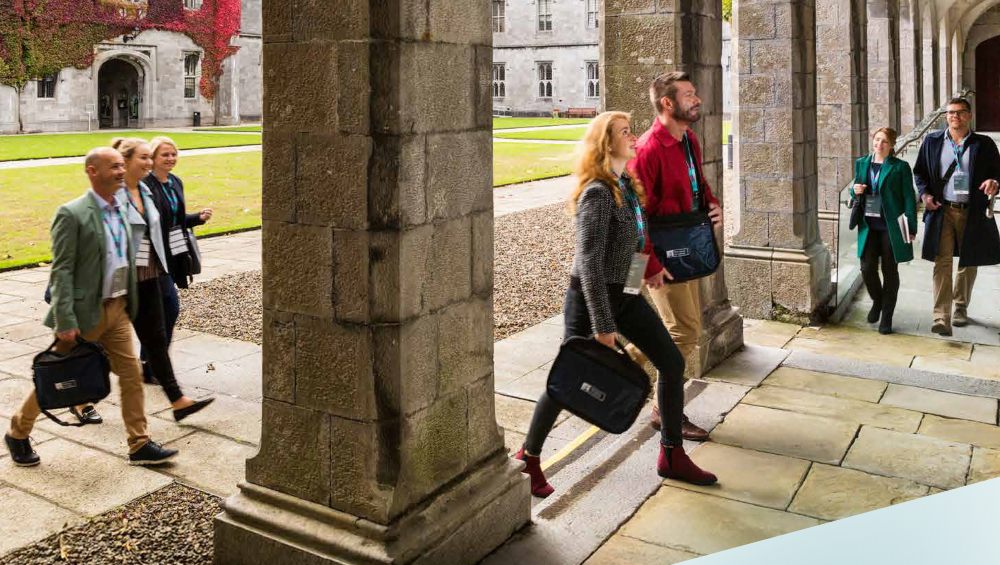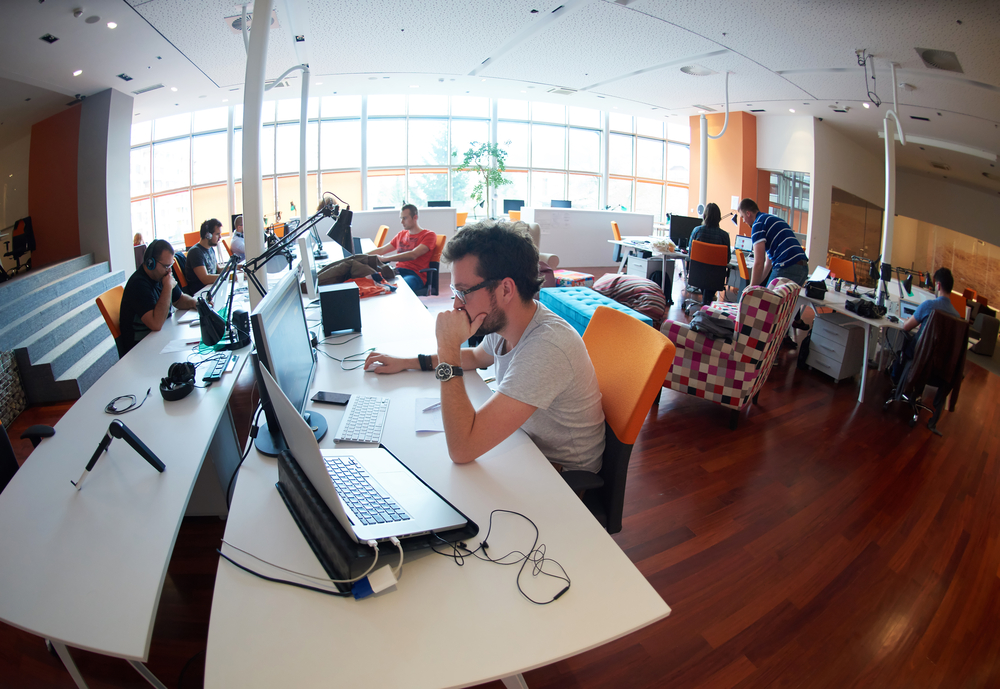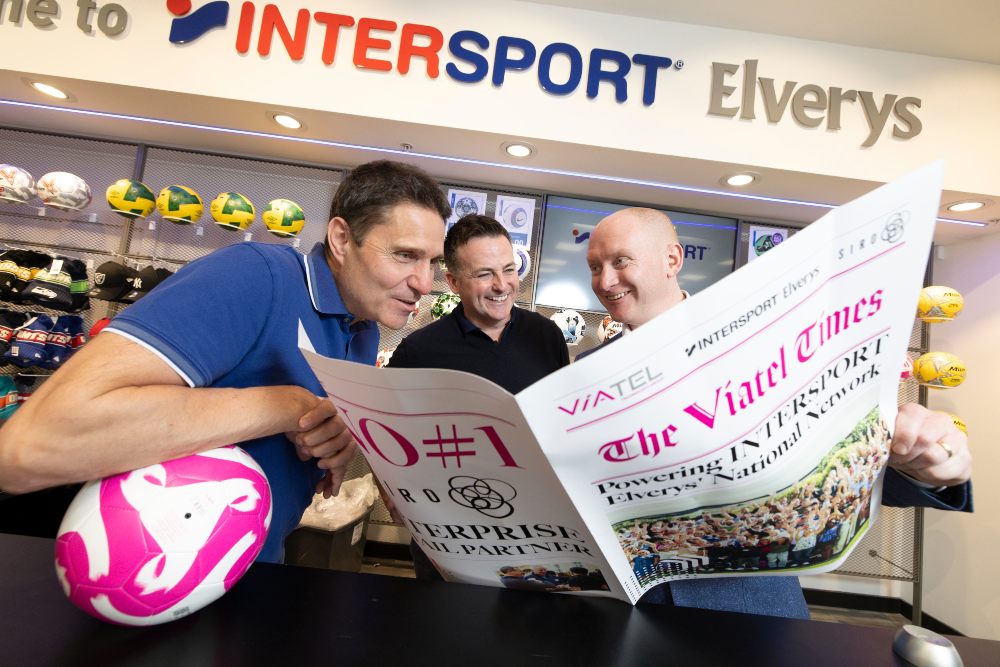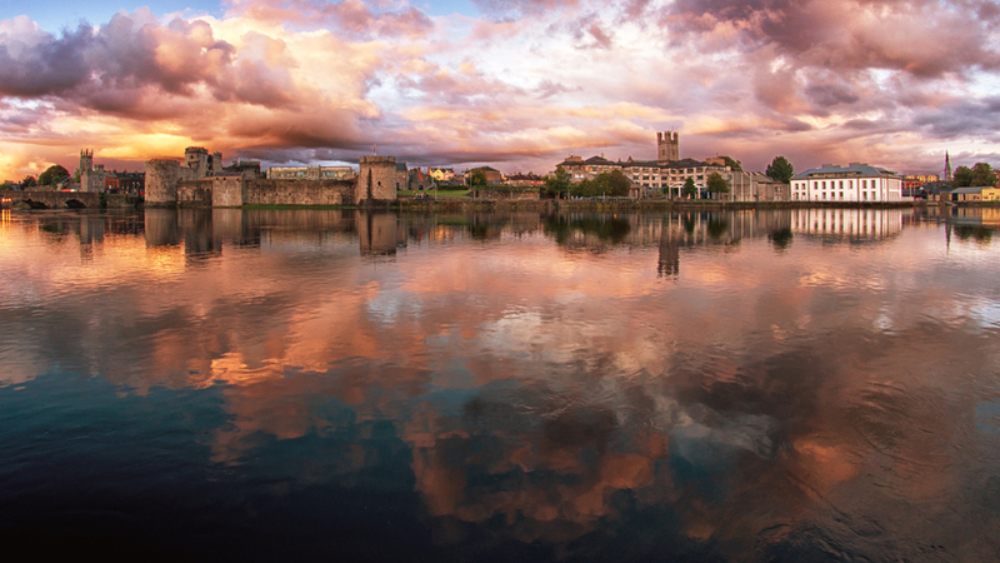What’s it like to move to Ireland, from another country, and set up a business? ThinkBusiness talked to three entrepreneurs who moved here to build their dreams.
Andy Chen, Chopped (pictured above, right with business partner Brian Lee)
I moved from China to Ireland in July 2000. I’m a co-founder of Chopped, Ireland’s leading healthy fast food retailer.
How did I start this business? My business partner Brian Lee and I were both going to the gym a lot at the time but were frustrated at the lack of convenient and good value nutrition available to us. We talked about this, and the seeds of Chopped were sown.
Ireland is my second home, and I find the business environment to be excellent. I didn’t consider establishing my business anywhere else.
My first venture was selling imported goods from China to Irish market stalls around Dublin, with Brian, about six months after I came to Ireland.
Soon after, I opened Ireland’s biggest internet café, ‘Five Star Internet Café’, on Talbot Street. I also opened the ‘Xtreme Internet And Gaming Centre’ on Lower Liffey Street.
Around this time, Brian was running a property management company, and we were both eager to work together again, so we opened a convenience store near Connolly Station. It was at this time that the idea for Chopped came to us.
We were both into fitness, and we wanted an option to eat healthy on the go. We established the healthy food company, Freshly Chopped, to meet this need and a few months after our first Chopped opened on Baggot St, we opened FIT Studios in Fairview.
“Non-Irish nationals may struggle to reconcile Irish humour with the professional environment. It’s also not unusual to conduct business meetings outside of the office.”
Did you receive any supports regarding funding or advice when you started your business in Ireland?
We didn’t receive any state or bank supports to start our business. However, we have had great support from our friends and family. We couldn’t have had the success we’ve had without them. We’ve also been lucky to have incredible franchisees who have helped us grow.
Chopped is now across Dublin, Kildare, and Galway and we will continue our expansion across Ireland and into the UK.
Do you think there is enough information for non-Irish nationals looking to set up a business in Ireland? What more can be done?
There are some great investor and entrepreneur programmes available for non-Irish nationals, for example, the Immigrant Investor Programme or STEP and the Citizens’ Information website are useful to find out how to gain access, but more can be arranged.
One issue which is preventing non-Irish nationals from starting a business in Ireland is that landlords are making a lot of the mistakes that got Ireland into the previous recession. They have already begun raising rents to unsustainable levels.
“We have been able to create a brand that resonates with Irish people using only our instincts. Always remember, If you’re standing still you’re going backward.”
What are the biggest differences or some of the quirks when doing business in Ireland rather than another country? What were the main hurdles you had to overcome?
The Irish are known for their sense of humour. The ‘craic’ is a part of the general conversation, and this can extend to business meetings. Non-Irish nationals may struggle to reconcile Irish humour with the professional environment. It’s also not unusual to conduct business meetings outside of the office – in a coffee shop or even in a pub. This can be considered strange if you are not used to it.
What advice would you give someone moving to Ireland to set up a business?
I would advise someone moving to Ireland to embrace it. Irish people love meeting new people and learning about other cultures, so they are very receptive to doing business with non-Irish nationals. It is important to trust your instincts.
We have been able to create a brand that resonates with Irish people using only our instincts. Always remember, If you’re standing still you’re going backward, and you’ll end up in a position where your success makes you lazy. Most importantly it is vital to treat everyone you encounter with respect and courtesy.
Nimesh Pinnamaneni, Helixworks
My co-founder Sachin and I came to Ireland in June 2016. Our business is about preserving information and data in a new way. We are developing a new medium that could, for example, store all of YouTube’s data in a test tube and have a lifespan of thousands of years. The storage medium is DNA – the same molecule that has the resilience to preserve life on Earth.
“The solution is to handcraft an egg shell.”
We got our first break through SOSV’s RebelBio programme that is based out of Cork and invests in early-stage startups from around the world.
We decided to move to a place where we can fulfill our destiny and the two most promising places, in our eyes, were Ireland and Canada.
When we got our break with the RebelBio accelerator in Cork, we decided to move here.
This is our second venture, and the biggest lesson I take from the first venture is that when you start you have a chicken and egg problem. You need money to build the product your customers want, and investors will only give you money if you have customers.
The solution is to handcraft an egg shell.
Did you receive any supports regarding funding or advice when you started your business in Ireland?
We began with an investment from a VC called SOSV and then when on to raise more from grant agencies like Enterprise Ireland and the LEO.
“In these scenarios, Ireland ends up losing business and talent to other countries.”
Do you think there is enough information for non-Irish nationals looking to set up a business in Ireland? What more can be done?
One of the places where Irish banks are losing business is that it is hard for companies, founded by people from other countries, to open a bank account here.
The problem is that the entrepreneurs must have an Irish company and a permanent address in Ireland to open a business account.
To be able to reside in Ireland, the Government has an excellent programme. Entrepreneurs can apply for the Startup Entrepreneurs Programme (STEP) run by the Department of Justice and Employment.
Is there too much red tape?
For an immigrant entrepreneur to start a company in Ireland, they need to deposit a €25,000 bond or have an EU director on board. It’s a CRO rule.
Most companies go around this by opening a Delaware C Corp in the US, followed by a bank account over there.
To be eligible for the STEP programme, entrepreneurs need a registered Irish company, which they can’t afford. In these scenarios, Ireland ends up losing business and talent to other countries.
What advice would you give someone moving to Ireland to set up a business?
Come to the rebel County Cork – aka Carbon Valley 🙂
Mbemba Abdulie Jabbi – Jabbi Group
I came to Ireland in 2002 as a student on a fellowship programme. I did my bachelor’s degree in development studies in Kimmage Development Studies Centre, a Master’s degree in Rural Development from University College Dublin (UCD), a Diploma in Community Development from the National University of Ireland Galway (NUIG) and a Master’s degree in Management from All Hallows College (DCU) before starting to work for the Africa Centre, where I used to work for the last nine years.
I set up a company Jabbi Group Limited in 2014 and started trading in March 2016. My business is a trading and management consultancy.
On the trading side, I sell a brand of milk powder packaged in Navan by a company called EPICOM. The brand package which comes in 1kg pouches and 25kg bags is called ‘DARAJOO’ a Mandinka word for ‘popular’. The milk powder is on sale in the Gambia since March 2016.
For the consultancy side of the business, I specialise in research, writing funding applications for NGOs, training in group management, human resources, policy formulation for the management of ethnic/minority-led organisations and I help them in their formation stage.
“Most migrants, especially the African migrants living in Ireland have good business ideas, but they cannot get official loans and have no access to grants to realise their dreams.”
Why Ireland?
I chose Ireland to start my business for a few reasons. In 2012 I became an Irish citizen, and I know Ireland better than the country I was born in, the Gambia.
Ireland has a better business opportunity especially when sourcing agricultural products like milk powder, potatoes, and other dairy products which I want to export to the Gambia and other West African countries.
Secondly, having worked in Ireland in the last few years with the African diaspora here, and having connections with the African diaspora groups at the European level, I felt doing consultancy work in this area will allow me access to African diaspora led organisations through my networks.
“I think Ireland is a more favourable place to do business than many countries. It is easy to set up a company, and open bank accounts provided all your documentation is in the right order.”
What have you learned so far?
This is my first venture as an entrepreneur. The key learnings for me are that it’s always difficult to get a good profit margin as a startup if you don’t have the capital required to export a sizable quantity of the products. This issue affected my cash flow.
Secondly, as a startup entrepreneur, you always need a second source of income alongside your business.
Thirdly, the price of products has been a shock for me. The price of milk powder fluctuates all the time, and it’s bad for export trade if you are a startup. My experience was, I bought milk powder at a higher price, and before my container arrived in the Gambia, the price fell in Ireland leaving me to sell lower than expected.
Finally, the competition in the consultancy business is unreal.
Did you receive any supports regarding funding or advice when you started your business in Ireland?
It is hard to get advice for my type of business. I run it from Ireland, but my customers are abroad.
The Local Enterprise Office is great to talk to, but they didn’t have the expertise to deal with a business like mine. I was keen to speak to Enterprise Ireland, but they weren’t keen to talk to me, as I couldn’t create jobs in Ireland and my business model has no support system within their operation. I couldn’t get a grant for my business, which also surprised me, mainly because I sell agricultural produce from Ireland. I thought there should be some support for that.
What were the main hurdles you had to overcome?
I think Ireland is a more favourable place to do business than many countries. It is easy to set up a company, and open bank accounts provided all your documentation is in the right order. However, there is very limited support in Ireland for migrant entrepreneurs compared to countries like the United Kingdom. Most migrants, especially the African migrants living in Ireland have good business ideas, but they cannot access loan from the banks and have no access to grants to realise their dreams.
What advice would you give someone moving to Ireland to set up a business?
Ireland is a favourable country to do business; there is very little bureaucracy in setting up a business either as a limited company or a sole trader. The tax system is favourable compared to many countries, and as a member of the European Union, you have access to a bigger market. The banking system is up to standard, and there are no restrictions on moving your money around to other countries or within businesses using the banking products as compared to some countries which have strict restrictions of how money can move outside the country.
MORE INFORMATION: Read this guide on coming to Ireland to set up a business.














